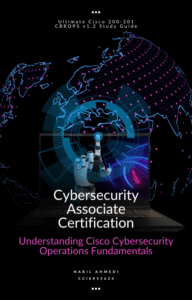AI Agent Use Cases 2026: Real-World Applications Across Industries
Artificial Intelligence (AI) agents are rapidly becoming central to business transformation across diverse sectors. In 2026, AI agents are no longer simple assistants but autonomous, intelligent systems driving enterprise workflows and decision-making. This article explores the most impactful real-world AI agent applications, where agentic AI is revolutionizing healthcare, finance, supply chains, customer service, smart cities, and more. Learn the core technologies empowering these innovations, practical benefits achieved, and how businesses and professionals can harness the power of AI agents to thrive in the new digital era.
What Are AI Agents?
AI agents are autonomous software entities capable of perceiving environments, reasoned decision-making, and taking proactive actions toward defined goals. Unlike static automation, AI agents adapt, communicate, collaborate with other agents or humans, and continually improve through learning.
Healthcare: From Diagnostics to Patient Management
AI agents in healthcare facilitate:
- End-to-end patient journey management through diagnosis, treatment planning, and follow-up
- Real-time monitoring of patient vitals with autonomous alerting
- Drug discovery acceleration via multi-agent simulation and data collaboration
- Personalized medicine advice integrating genetics and lifestyle data
- Streamlined administrative tasks reducing clinician burden
This domain benefits from continuous AI learning mitigating human error, improving outcomes, and addressing healthcare professional shortages.
Finance: Fraud Detection and Portfolio Optimization
Financial institutions leverage AI agents to:
- Monitor transactions for fraud, money laundering, and regulatory compliance
- Automated portfolio balancing adapting to real-time market conditions
- Customer service chatbots escalating complex issues to AI agents with economic decision capabilities
- Loan application processing guided autonomously through multi-step workflows
- Predictive analytics informing risk management and investment strategies
Agents operating 24/7 enhance security and customer experience while reducing operational costs.
Supply Chain and Logistics: Intelligent Orchestration
AI agents autonomously:
- Manage inventory through demand forecasting
- Optimize delivery routes adapting to real-time traffic and weather
- Collaborate across suppliers and distributors in agent teams
- Detect and respond to disruptions proactively
- Automate warehouse operations with multi-agent robotics coordination
This drives resilient, agile supply chains essential in the era of global complexities.
Customer Service: From Chatbots to Autonomous Agents
Modern AI agents:
- Handle complex, multi-channel customer interactions end-to-end
- Learn continuously from historical data improving responses
- Coordinate with human agents dynamically for escalation
- Enable personalized experiences across languages and regions
- Integrate with CRM and ticketing for seamless issue resolution
Such AI-powered support improves scalability and customer satisfaction.
Smart Cities and Public Services: AI for Sustainability and Efficiency
AI agents enable:
- Optimization of public transit schedules and urban mobility
- Automated infrastructure monitoring and maintenance scheduling
- Environmental monitoring leveraging sensor networks and agent communication
- Streamlined public services through autonomous permit processing and citizen engagement
- Emergency response coordination enhanced by predictive simulations
Cities leveraging agentic AI increase sustainability and resident quality of life.
Manufacturing: Autonomous Robotics and Process Control
Agentic AI facilitates:
- Self-coordinating cooperative robots performing assembly, quality checks, and logistics
- Real-time production line optimization adapting to demand fluctuations
- Predictive maintenance scheduling avoiding costly downtime
- Safety monitoring with agent-based anomaly detection
- Integration of humans and robots in collaborative workspaces
This increases output efficiency while enhancing worker safety.
Implementing AI Agent Solutions: Best Practices
- Start with pilot projects targeting well-defined, measurable problems
- Ensure robust data pipelines and AI governance policies
- Design multi-agent collaboration protocols accounting for conflict resolution
- Keep human oversight in critical decision paths for trust and compliance
- Invest in continuous training and evaluation adapting agents over time
Career Opportunities in AI Agent Development
Grow your skills in:
- Multi-agent system architectures
- Reinforcement learning and cooperative AI
- AI lifecycle management with DevOps for AI
- Domain expertise in target industries (health, finance, logistics)
- Ethics, explainability, and AI fairness principles
AI agent careers offer forefront opportunities with lucrative compensation and global demand.
Conclusion: AI Agents Powering 2026’s Digital Transformation
By 2026, AI agents will underpin many enterprise critical workflows, enabling unprecedented levels of automation, intelligence, and collaboration. Understanding these technologies and use cases prepares businesses and professionals to unlock transformative value and lead in the evolving digital economy.
Embrace AI agents now – the future of autonomous intelligence is here.
